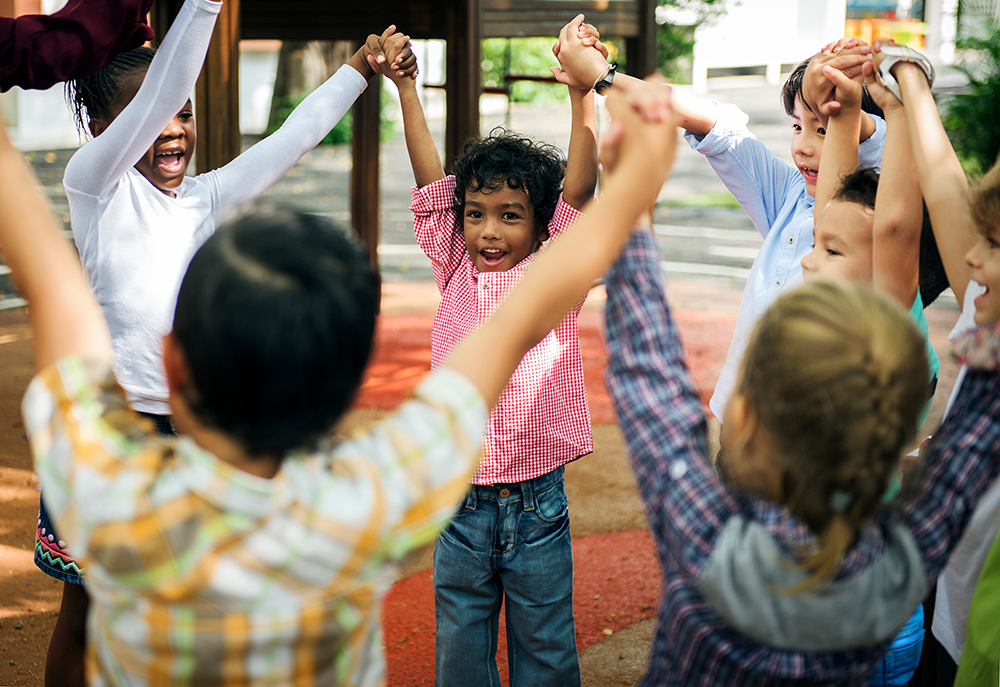
December 2022
By Julia Yankelowitz
Many students across the United States are bilingual and come to the classroom with rich cultural and linguistic tools. To ensure these students thrive, we need to value and understand the cultural and linguistic capabilities and lived experiences of their caregivers, their teachers, and the students themselves.
Claudia Rodriguez-Mojica from Santa Clara University (SCU) and Allison Briceño from San José State University (SJSU) have developed BBILY – Bilingual/Biliterate Instruction for Bilingual Youth (BBILY) – an online professional development (PD) program focused on biliteracy, culturally and linguistically responsive learning, and evidence-based practices to support bilingual students. BBILY strives to equip teachers with mindsets, theories, and instructional practices that can support bilingual students’ learning and leverage their linguistic and cultural identities. Two different groups of practitioners are participating in the BBILY PD: teachers in training at SCU and SJSU and practicing teachers in CA and NM.
SRI Education is leading an external evaluation of BBILY. SRI researchers will provide ongoing feedback to the BBILY development team as well as evaluate the impact of BBILY on students’ biliteracy development and teachers’ attitudes and beliefs. The research team is choosing practices to effectively understand and evaluate the innovative approaches used in BBILY to support and affirm bilingual students.
How is BBILY designed to prepare bilingual teachers to work with bilingual students?
- BBILY PD workshops are delivered in Spanish, empowering multilingual teachers to further develop their own Spanish proficiency and increase their comfort level teaching in Spanish.
- The professional development series emphasizes caregivers as equal partners in their children’s education. The PD includes in-person workshops for a limited number of caregivers as well as opportunities and strategies for educators and caregivers to develop partnerships.
- BBILY workshop content features teachers teaching reading and writing to bilingual students using culturally and linguistically responsive practices that build from bilingual language theory, a holistic understanding of students, and students’ strengths. Teachers examine the interconnectedness between a student’s writing ability in both languages and identify opportunities for applying strengths in one language to their writing in the other.
- The program is online and asynchronous, allowing teachers to complete workshop modules as best fits their schedule.
How is SRI designing its evaluation to capture these features?
The SRI evaluation team is using a rigorous mixed methods design – combination of surveys and interviews – that will provide evidence that meets What Works Clearinghouse standards for rigor. The evaluation will provide the BBILY design team feedback on the strengths and areas for growth as they pilot this online, asynchronous, innovative professional development program.
The team is working collaboratively with the BBILY design team to ensure the evaluation will:
- Capture how teachers internalize BBILY content, particularly teaching practices focused on students’ assets that draw from current bilingual language theory.
- Understand how teachers shift their instructional practices in the classroom after participating in BBILY.
- Discover how caregivers and teachers shift their approach to caregiver-teacher partnerships after participating in BBILY PD.
- Measure the impact of teachers’ participating in BBILY workshops on their students’ biliteracy skills.
The evaluation relies heavily on surveys to understand the key features of the BBILY program and a series of interviews to learn from caregivers. By disentangling the experiences of teachers, caregivers, and students we can best understand the implementation and impact of this único – one-of-a-kind – professional development program. We believe this program will serve as an exemplar for future innovative professional development programs.
Learn more about the BBILY evaluation.
Topics: Evaluation Teacher Quality Teachers
